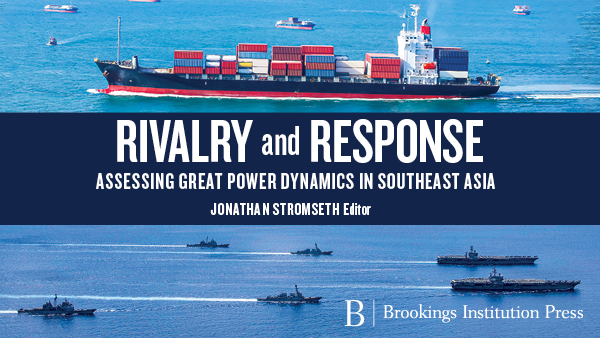In this interview with The Diplomat, Jonathan Stromseth, Lee Kuan Yew Chair in Southeast Asian Studies at the Brookings Institution, discusses the findings in his recently released book, “Rivalry and Response: Assessing Great Power Dynamics in Southeast Asia.”
Stromseth explains how Southeast Asian countries would prefer to engage with China and the US as the strategic rivalry between the two powers has heightened, and he shares recommendations for how the Biden administration could improve relations in the region by putting greater policy emphasis on diplomacy and economic development.
Over the past decade, Southeast Asia has found itself the subject of an increasingly heated strategic competition between the United States and China, two powers with which the nations of the region retain deep security and economic ties. A new edited volume, “Rivalry and Response: Assessing Great Power Dynamics in Southeast Asia,” examines various aspects of this burgeoning Sino-American competition, from the region’s response to China’s Belt and Road Initiative to the implications of its recent authoritarian turn.
In this interview, the book’s editor Jonathan Stromseth, Lee Kuan Yew Chair in Southeast Asian Studies at the Brookings Institution in Washington, D.C., talks with The Diplomat about what Southeast Asian nations want from the United States, the role of the Quad in Southeast Asia, and how the Biden administration should best engage the region.





